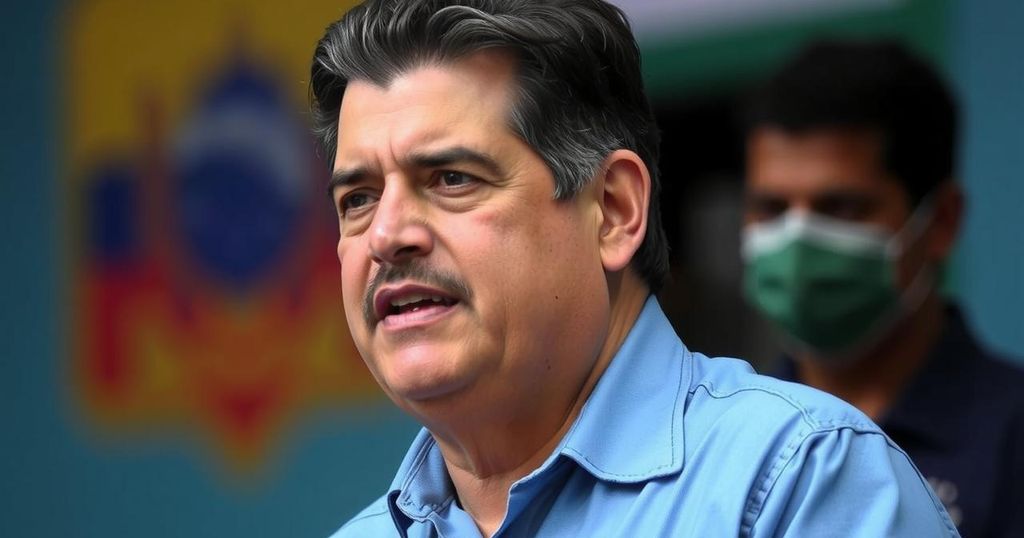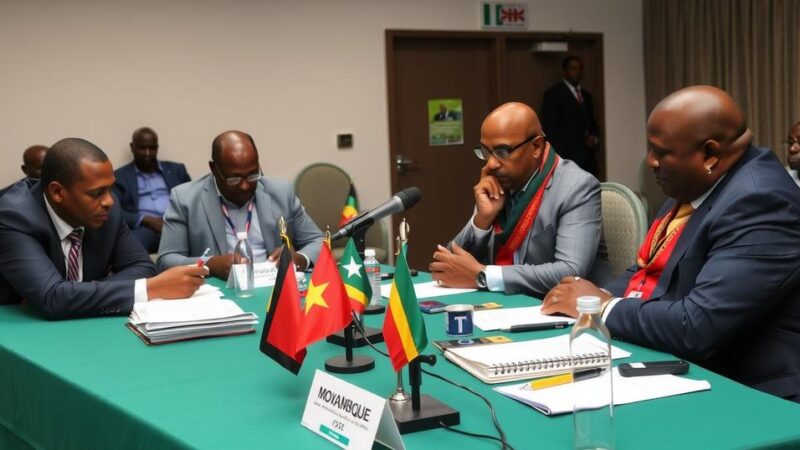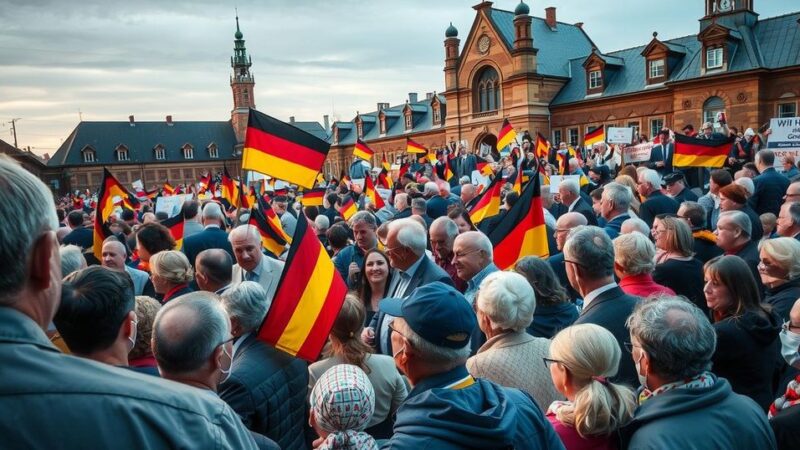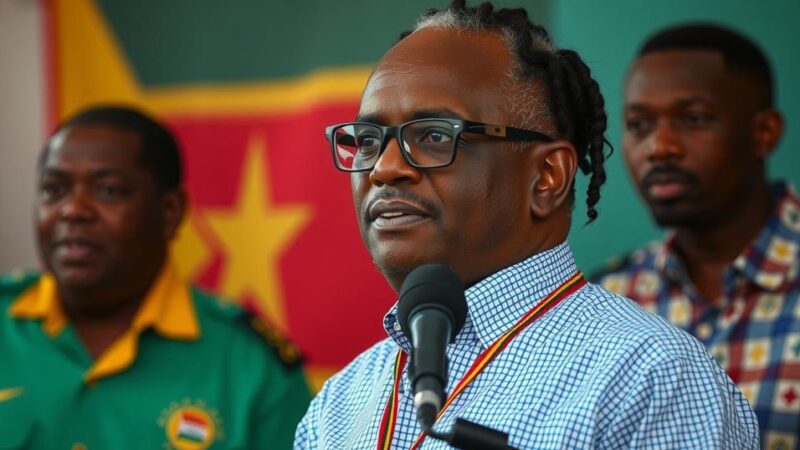Colombia has offered to take custody of the Argentine Embassy in Caracas to ensure the safety of six aides of opposition leader María Corina Machado, who have sought refuge there since March. Ongoing negotiations with Venezuela’s government may secure these officials’ safe passage, contingent upon certain conditions regarding detained individuals in Argentina and Ecuador. The situation highlights Colombia’s increased diplomatic role amid Venezuela’s political repression and human rights concerns.
Colombia has offered to take responsibility for the Argentine Embassy in Caracas, where six aides of opposition leader María Corina Machado have sought refuge since March. According to Colombia’s Foreign Affairs Minister Luis Gilberto Murillo, this initiative is part of ongoing discussions with the Venezuelan government to ensure safe passage for these officials. He indicated that the Venezuelan government is amenable to cooperation, contingent upon Argentina releasing a person associated with the Venezuelan authorities and Ecuador freeing former Vice President Jorge Glas, detained amid a controversial raid on the Mexican Embassy in Quito.
The diplomatic maneuvering underscores Colombia’s increasing involvement in Venezuela’s political crises, especially following President Nicolás Maduro’s harsh repression of dissenters after his disputed electoral victory. The aides, who moved into the Argentine Embassy to avoid arrests for alleged terrorism linked to Machado’s campaign activities, have faced escalating intimidation from Venezuelan police. Reports reveal that these officials have documented instances of police cutting off essential services to the Embassy, which the United Nations Human Rights Council has characterized as violations of international law.
The group includes key figures in Machado’s campaign, such as campaign manager Magalli Meda and advisors Pedro Urruchurtu and Claudia Macero. Amid heightened tensions, both Maduro and former diplomat Edmundo González Urrutia, who has sought asylum in Spain, have expressed intentions to assume the presidency on January 10. Murillo, dispatched by President Gustavo Petro, has engaged with Brazilian and Ecuadorian counterparts to address the situation, though Brazil has declared it will maintain control of the Embassy until Argentina appoints a replacement. Argentina remains vocal in its denunciation of human rights abuses in Venezuela, highlighting a lack of respect for fundamental rights under Maduro’s regime. Despite recent diplomatic efforts to rekindle relations between Venezuela and Brazil, President Lula da Silva has withheld recognition of Maduro’s election victory, demanding accountability in the election process.
The situation between Colombia and Venezuela has reached a critical juncture amid escalating political tensions and humanitarian concerns. Following Nicolás Maduro’s contentious re-election, there has been a notable clampdown on dissent, leading to arrests and persecution of opposition members. As these political dynamics unfold, several opposition figures have sought refuge in embassies to evade potential arrest. Colombia’s involvement reflects an effort to facilitate dialogue and secure their safety while advocating for respect for human rights in Venezuela. Furthermore, the plight of former Vice President Jorge Glas and the strained relations between various South American nations add complexity to these diplomatic negotiations.
In summary, Colombia’s proposal to take custody of the Argentine Embassy in Caracas reflects its proactive stance in addressing the plight of opposition members under threat from the Venezuelan government. As Colombia engages with Venezuela and neighboring countries, it aims to broker safe passage for these officials, underline human rights violations, and navigate the intricacies of regional diplomacy amidst fluctuating political alliances. The ongoing engagement illustrates the challenges for democracy and civil liberties in the face of authoritarianism in Venezuela.
Original Source: www.batimes.com.ar







